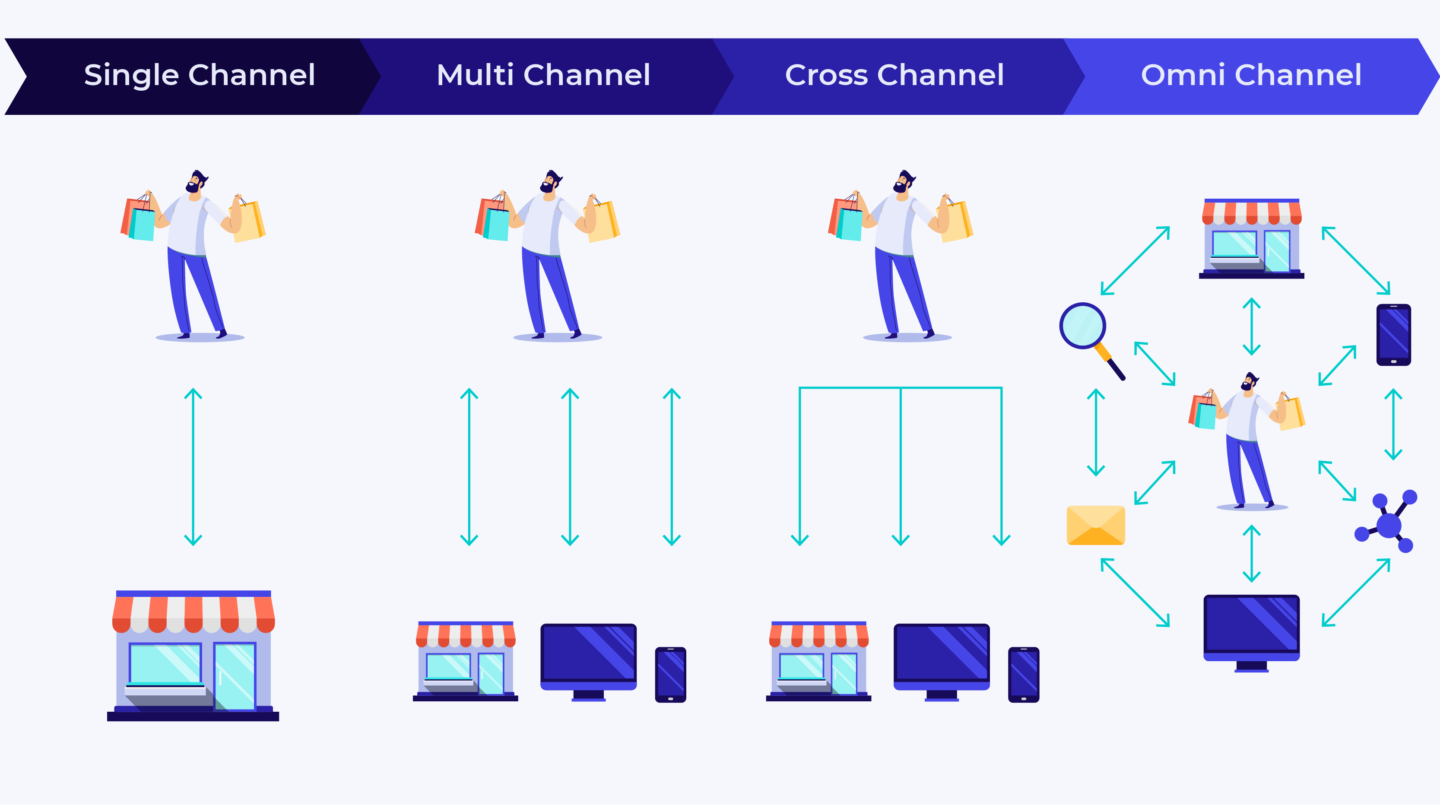
In a crowded world where most businesses will face stiff competition, ensuring your marketing strategy is sound is vitally important. Not surprisingly, marketing strategies have evolved significantly over the last few years as consumers find themselves in an increasingly connected world where brands and businesses can operate across a variety of channels.
The upshot of this has been the birth of Omnichannel Marketing. In this article, we’re going to look at what Omnichannel marketing is by definition and how your business can benefit from such a marketing strategy. Let’s get started!
What Is Omnichannel Marketing?
We live in an incredibly interconnected world. We’re so used to this now that it’s hard to remember a time when you couldn’t order a product online, check out the delivery date, and chat with a support agent all from a mobile phone! This amazing transformation in how we live our day-to-day lives has resulted in new marketing strategies that aim to ensure we enjoy a seamless user experience at all stages of our interaction with a business or service provider. This marketing strategy is defined as Omnichannel.
Try our Award-Winning WordPress Hosting today!

Thanks to some serious research into the subject, it’s now well understood that consumers typically take advantage of multiple channels in order to interact with a business. The more channels available, the greater the loyalty to that business/brand would become. This research highlighted the importance of a consistent experience across these channels.
Traditionally, marketing was Single-channel. This meant interaction between the consumer and business took place via one channel only. For example, a consumer would visit a shop and there was no other way with which they could communicate/interact with the business in question.

With the advent of the internet things quickly became Multi-channel. This meant a consumer could interact with a business via their website as well as in-person at a physical location. But whilst there was the ability for consumers to engage with a business via two or more channels, these channels didn’t necessarily work in synchronicity with one another.
Cross-channel marketing takes things to the next level and ‘joined the dots’ between each of the available channels open to a customer. For example, a consumer could place an order online and collect this order in-store.
Omnichannel marketing is the most sophisticated marketing strategy available and works to further enhance the cross-channel experience. Let’s take the example of a customer who buys a wood-fired BBQ online and opts to collect this in-store. 2hrs after collection the customer receives a personalized email that includes recipes they may like to try that are tailored to their particular BBQ. A week later, they get a text message that invites them to a cooking demo held at the store and a coupon valid for accessories unique to their BBQ. The sales assistant who welcomes them back to the store for the cooking demo knows the type of BBQ purchased and is ready to offer advice tailored to this purchase. The upshot is that the customer hopefully feels delighted at the level of service received and, thanks to the personalized nature of the advice being given and the products that are recommended, is more likely to make further purchases.
The Benefits Of Omnichannel Marketing
But what problems exactly does an Omnichannel strategy solve? In what way does it improve the brand-consumer relationship?
Well, as we outlined above, the more that can be done to improve the customer journey the greater the levels of satisfaction. That’s always a good thing! And, the more ‘dialed in’ a customer is, the more loyal they will become to the business.
Another reason for utilizing Omnichannel marketing is efficiency. Marketing is expensive, pretty much no matter how it’s done, and, the more targeted you can make it, the more effective it becomes, and, in doing so, this drives down the cost of your marketing. A great example of how an Omnichannel approach to this works would be when you send out email promotions to an existing database of customers. With systems that ‘talk’ to each other, the products promoted in these emails can be personalized. If the customer purchases any of these products a data-sync triggers an update and removes this product from future notifications. Because not only is there no point in trying to sell a product to someone who has already bought it, but it also avoids looking like you don’t know your customer as a business.
In summary, the benefits of having a true Omnichannel marketing strategy are significant. Increased brand loyalty, more cost-effective marketing, and increased sales are just a few.
Conclusion
Omnichannel marketing really works as research has shown. With more businesses waking up to the benefits, it’s a case of jumping on board or risk being left at the station, and the sooner your business evolves to take advantage of everything a true Omnichannel marketing strategy has to offer, the better!
Omnichannel marketing is a huge topic. As such, we’ll be devoting several articles to looking at this in more detail. We would also recommend that you invest some time in reading our guide on the initial steps your business will need to take to begin marketing in an Omnichannel way.
Start Your 14 Day Free Trial
Try our award winning WordPress Hosting!





















